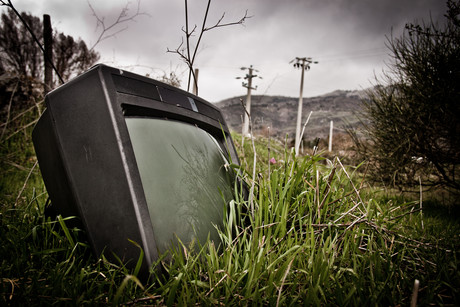Australians are in the habit of e-waste hoarding

Nearly half of all Australians are not disposing of their e-waste at the expense of the environment, according to new research.
TechCollect has found that 43% of people are holding onto unused or broken electronic devices in case they need to use them again.
One of the main reasons why Australians do not recycle their e-waste is because they are concerned about losing personal data if they do so.
Other reasons include not knowing where to recycle e-waste, not knowing it could be recycled and not wanting to pay to have their device properly recycled.
Personal data was highlighted as a key concern twice, with 64% of respondents also stating they do not recycle their e-waste because they worry their data will get into the wrong hands. Previous TechCollect research shows this number has increased by 25%, with the same question receiving a response of 39% in 2015.
TechCollect Chief Executive Officer Carmel Dollisson said all Australians need to take an active role in being responsible for recycling the e-waste they are generating.
“The challenge is encouraging consumers to let go of old devices they are no longer using or which are actually broken beyond repair. Although devices can hold sentimental value, the non-renewable resources in them can be used in manufacturing when recycled correctly,” she said.
“Our new research tells us the average Australian household has approximately 17 electronic devices in the home and yet only 23% of us are always recycling them. With the consumption of electronic devices getting higher all the time, it’s crucial consumers look at e-waste recycling as the natural next step in the product life cycle, especially when it no longer serves its purpose to them.”
When asking respondents what they do with their unused electronic devices, only 33% admitted to actually recycling it at a designated drop-off site. Other responses included putting their e-waste on the nature strip for a scheduled council collection and throwing it in the garbage bin, which means the product is almost certain to go straight to landfill.
“What is concerning in the research is 53% of respondents don’t know they can take their e-waste to an e-waste collection site to avoid it going to landfill, and 63% don’t know if their local council recycles,” said Dollisson.
“These figures are definitely worrying to us. As the end users of these products, it’s important the public is informed on the important role they play in responsible e-waste recycling.”
For those who choose to recycle their e-waste, 74% do so because they feel responsible for the e-waste they produce.
When respondents who don’t recycle their e-waste were questioned, 18% said they feel very guilty and 46% say they know they could be doing more to help. Apathy is a problem too, with the research showing 31% don’t really think about it.
“These findings are promising. They tell us most people feel responsible for the e-waste they produce and do feel an element of guilt when they choose not to recycle it. But the sad reality is many people just don’t know what to do with their e-waste. It’s why TechCollect is keen to inform people about the importance of recovering the resources we already have in products that can be re-used, ensuring they understand the process of recycling their e-waste, and where they can dispose of it,” said Dollisson.
Who should take the lead in responsible AI?
The companies that treat responsible AI as a necessity today will be the ones defining the...
Why there's no efficient automation without integration
It's not enough for organisations to simply use AI: they must leverage it in a way that...
AI-driven observability: fundamental for business continuity?
The strategic blending of observability with AI is no longer a nice-to-have: it's necessary...




